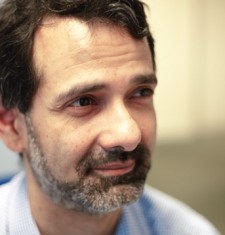
- Using immunotherapy to destroy cancer cells
Tildy’s Trust has donated £50,000 towards this exciting work on immunotherapy which is based around genetic modification of bone marrow donor stem cells. Persis and Nick have found a way to genetically ‘reprogramme’ these cells so that they seek out and destroy the remaining leukaemia cells. When infused into the child, the reprogrammed immune cells search the child’s system for leukaemia cells, latch on to them and kill them. This treatment will initially be applied to children who have relapsed after BMT, however once the science is proven, the procedure could theoretically be used much earlier in the process.
Click here to read acknowledgement letter from CwC. To understand more detail about the research, read more below.
LAY DESCRIPTION
B-lineage acute lymphoblastic leukaemia (ALL) is the commonest cancer in childhood. Despite advances, 20% of children fail currently available treatments, including stem cell transplant (SCT). We can reliably identify patients at highest risk of relapse after transplant by assessing minimal residual disease (MRD) but at present there is no treatment to prevent relapse in such patients. Similarly, patients who relapse after SCT are currently incurable. We need new therapeutic strategies to prevent relapse in such patients.
In this study we propose to target ALL leukaemic cells persisting after SCT by genetically modifying immune cells (T-cells) from the donor so that they can recognise and kill leukaemic cells that persist after SCT. We will genetically modify donor T-cells with a virus carrying a CD19-specific chimeric T-cell receptor so that they recognise the CD19 molecule on the surface of leukaemic cells. CD19 is an excellent target for this approach because it is highly expressed on almost all ALLs (and normal B-cells) but is absent on other types of cells, so that the redirected immune cells should not cause toxicity outside the marrow. Preclinical studies by our group and others have demonstrated that gene-modified CD19-specific T-cells efficiently kill ALL leukaemic cells in the laboratory and transfer of such T-cells results in eradication of CD19-positive tumours and improved survival without significant toxicity in mouse models.
We now propose to treat children who develop evidence of MRD after SCT or who relapse and undergo a second transplant procedure with CD19-redirected donor T-cells, to improve the immune response against leukaemic cells and prevent relapse after transplant. The study will take place in 10 centres across 4 EU countries and uses an integrated approach to immunotherapy to optimize the chances of the infused CD19-redirected donor T-cells surviving and working in the patients. This study will be the first clinical study in man of chimeric TCR transfer for leukaemia and will establish the feasibility and safety of adoptive immunotherapy with CD19-redirected donor T-cells.
Over the reporting period, we have made significant progress towards our goal of treating children with high-risk ALL. Our industrial partner, EUFETS AG, has successfully manufactured a clinical-grade retroviral vector that will be used to genetically modify donor T-cells. This vector was sent to the cell manufacturing facility at UTCG in Nantes, France. To validate our manufacture of CD19-redirected donor T-cells for clinical use, UTCG have successfully completed 4 production dry runs. These dry runs were shown to be sterile, viable and killed CD19 expressing cells well, but did not recognize cells from the patient not expressing CD19. Additional quality control tests were also performed (no replication competent retrovirus, normal karyotype, low mean transgene copy number, and polyclonal integration) which show the gene-modified T-cells have a good safety profile. Similarly dry runs for 3 batches of irradiated donor LCLs for vaccination also conformed to their release criteria and were shown to be sterile, viable but unable to grow in culture.
We have also validated the transport conditions of the CD19-redirected donor T-cells from UTCG to London in a dry shipper and successfully performed stability testing of both CD19-redirected donor T-cells and irradiated donor LCLs at UTCG, enabling us to set expiry dates for both products (12 and 15 months respectively).
All the data on the 2 drug products were collated in the Advanced Medicinal Therapy Product Dossier (ATMPD). This document along with other clinical trial documents, including the Protocol and Investigators Brochure, was submitted to the regulatory authorities. In January 2011, we applied for regulatory approval to the competent authorities in UK, France, Germany, Italy and Austria simultaneously using the Voluntary Harmonisation Procedure (VHP) to streamline the application process. The VHP committee provided extensive feedback on our application and we have now generated the additional data requested by the VHP assessors. A new clinical trial application has been submitted to the VHP on the 6th July 2011 and a decision is expected in August. Finally, we have received ethical and site approval from the Gene Therapy Advisory Committee (GTAC).
